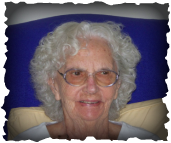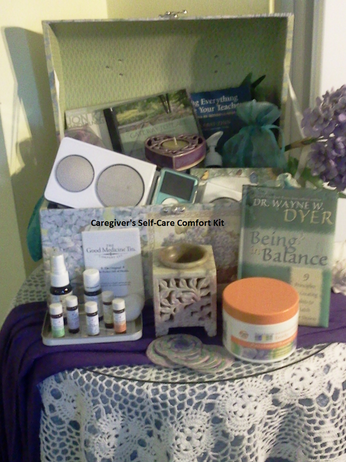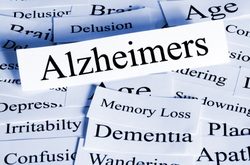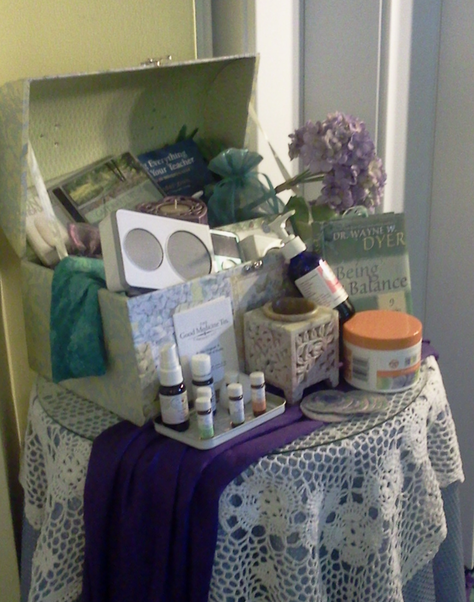|
7/29/2013 Beautiful Compensations of Caring"It is one of the most beautiful compensations of life, that no man can sincerely try to help another without helping himself."  Throughout my life, I have come to know a deep spiritual truth: We are all connected. According to Chief Seattle, "Humankind has not woven the web of life. We are but one thread within it. Whatever we do to the web, we do to ourselves. All things are bound together, All things connect". To me, this connection called the web of life means that every action we take (or avoid taking) has an impact somewhere, either within our own lives, on other life forms, or upon our environment. This idea has been reiterated by many wise poets, writers, philosophers and theologians, so it is not new. However, I think it applies even more strongly to the relationship of caregiver to care receiver. I'm speaking here of the quality of our caregiving experience, from both sides of the equation. I've written in this blog of some of the negative consequences caregiving can have, in terms of the caregiver's health, happiness and sense of balance in life. All true. But I want to give some time also to the beautiful compensations, those incredibly precious moments of connection at the soul level, that can be a part of caregiving as well. Every person and situation is as unique as a fingerprint or snowflake, so generalizing is risky. But I think this is a crucial part of creating a more serene, beneficial experience, so I am willing to go out on this limb. In caring for my mother, I learned (sometimes the hard way!) that we were incredibly connected -- whether that was judged a good or bad thing was up to me and the perspective I chose. She responded to me on an almost psychic level at times, picking up on emotions and reactions of which I might be totally unaware. She often understood that something was upsetting me, even before I knew it! Though she could not always ferret out the correct reasons, she still related to me from this knowing. I soon realized I could not "fool" her into believing everything was fine if it wasn't. So, I had to clear my own mind and heart before approaching her. I could not hide behind a pretense or falseness. Mom spotted that immediately! She was like a dolphin whose echo-location scanned below the surface, all the way through my innermost self, and saw truth. It reminded me of times as a child when I believed Mom could tell if I was fibbing by looking into my eyes. Perhaps she could -- a mother's own type of radar or a truth-seeking missile. There were several activities we did to nurture and connect us: music was a powerful device for this. We often sang together, watched musicals on DVD that were her favorites, and listened to hymns or songs by Nat King Cole, Bing Crosby, and other "crooners" from Mom's era. I wish that I'd known about the iPod Project (www.musicandmemory.org and on this site click here) in time to use that with my Mom. But, alas, I learned of it too late. Another connection was found through flowers, specifically roses -- that lovely flower was Mom's talisman, since she grew a beautiful rose garden which she shared with her friends to uplift and bless them all her life, so it was perfect for reminiscing. And, lastly, perhaps the most potent of all: simple loving touch. I used gentle, soothing touch with Mom every day -- putting lotion on her skin, gently rubbing her back at bedtime, using aromatherapy oils on her hands and arms, hugging her several times a day, touching her arm or hand as we walked, reaching over to pat her knee as we watched TV or in the car. I used touch along with giving her reassuring words, and loving eye contact. It was this that most often sparked a spontaneous "I love you", or "You're a little sweetheart" (her favorite term of endearment). Now, in the interest of being completely candid, I must report that I am not a saint. There were days when exhaustion, lack of sleep, worries, distractions, stress or any number of other things got in the way of my being the best caregiver I could be. There were days I didn't much like myself for being tired, short-tempered, upset. I've had to figure out how to forgive myself for not being perfect, for not always knowing how to approach this huge job of being completely responsible for another life. Most days I can do that. I'm still working on it. I wanted to share this, from my heart, because I know that the one thing caregivers often find in short supply is hope. Hope for a loving positive experience in caring for one they love. My advice is to create that hope and joy one moment at a time. Make this moment count. Use all your creativity and passion to connect through all the senses -- sound, touch, smell, sight and taste. Be present as a healing, loving being right now. Let the next moments and days take care of themselves as much as you can. And find the peace and grace of those beautiful compensations of caring -- one moment at a time. 3/21/2013 Caregiver's Self-Care Comfort Kit"You give but little when you give of your possessions. It is when you give of yourself that you truly give." ~Kahlil Gibran  Caregiver's Self-Care Comfort Kit Caregivers are, by their very definition giving people. They do give of themselves, sometimes for many years, faithfully supporting their care-receiver. It turns out that most caregiving roles are more a marathon than a short sprint, so one has to be prepared with the strength and stamina to continue. Quite often caregivers find themselves battling their own chronic stress, burnout, depression, health problems, relationship challenges, and other negatives to quality of life. It is, therefore, of the utmost importance to find ways to reduce the stress, relax, disengage for a time of respite and renewal. I've spoken of this many times in the past year, even giving recommendations to create a Caregiver Comfort Drawer for those emergencies when you need a little extra TLC. However, in the previous posts, I didn't include a photo of the kinds of things I was recommending, and a photo is, as the saying goes, worth a thousand words. So, today, I am giving you a glimpse into my own self-care comfort kit, a photo tour, and a list of the types of things I included that worked for me. I realized, especially toward the end of my mother's life, that this comfort kit needed to be mobile, rather than in a drawer at home. That way, my visits to Mom could include pampering for us both. I hope you will find the suggestions helpful and that some of them will resonate with you. Please do find something to help you deal with the stress levels. It is not being self-indulgent to do so -- it may save your sanity, and perhaps even your very life! Here is a list of items my comfort kit contains, by category: Aromatherapy: Oil Lady Aromatherapy Good Medicine Tin, which includes 5 essential oils, pure organic jojoba to blend them, a lavender mist bottle, and instructions on how to use them in various ways, such as in a diffuser, in the shower/bath, in self-massage, hand massage, etc. These are simply wonderful in all kinds of situations, to calm & balance oneself and reduce stress. I give them my highest recommendation. They also sell a Sweet Sleep Kit with the lavender mist, and lavender oil, along with natural tranquilizer oil, which is great for those nights when sleep eludes you or your care-receiver. I also have a diffuser in my kit. Mine uses tea light candles, so must be attended at all times, but there are electric ones as well which can be set to low temperatures. In addition to the above, I also included Stimulator Oil and Balancer Oil blends from Oil Lady. I love them for myself and my Mom. Aura Cacia makes two great body creams that have become favorites -- Lavender and Patchouli/Orange are now my standards for moisturizing and make a pleasant bedtime ritual. And, I use some of their bath products when I want a special, relaxing treat. For more aromatherapy suggestions, visit my page: Aromatherapy Books & Music: For relaxation, I use a guided meditation called Gateway to Peace by Max Highstein. It is soothing music and words which takes you on a 12 minute journey of renewal. Great stress reducer! I also use Jon Kabat-Zinn's CD, Mindfulness for Beginners to learn mindfulness meditation. And, as a companion to that, the book Everything is Your Teacher, based on Kabat-Zinn's book, Full Catastrophe Living, offers great insights. I love Wayne Dyer's book Being in Balance which is quite helpful, and can be read in small increments if time is in short supply. There are many other books and recordings, and I find it most functional to put the music and meditations on an iPod for easy use and storage of a bunch of favorites. I bought an iHome speaker dock for it, which is rechargeable and has its own case for easy portability. That way, others, such as your care-receiver, can listen to, if you wish. I cannot emphasize to you enough the amazing power that music has to affect your mood and sense of well-being. It is a wonderful tool, for both you and your loved one, so please do make use of it in the ways you find most healing and helpful. Other items: A small journal/Gratitude journal Stationary and envelopes Colored pens, pencils, sketch pad Healthy snacks and not-so-healthy emergency chocolate (dark, of course, so I don't feel quite so guilty) You can get very creative with your comfort kit -- after all it is for YOU, so whatever speaks to your heart and soothes your soul is perfectly valid. I also advise using humor wherever possible and in whatever form you can find. It really will help keep life on the lighter side to have some laughter) 10/3/2012 Memory Cafes & Overnight Respite Care I've just been reading about these two concepts for Alzheimer's care, which frankly could completely change the face of caregiving for families dealing with this difficult disease. Given that one of the biggest problems for family caregivers caring for their loved one at home is isolation/depression, the chance to be with a group of other caregivers (and care receivers) in an enjoyable social setting provided by the Memory Cafe is a perfect boost to mental and emotional health. Even respite care, though very necessary, doesn't provide the same kind of supportive, warm, interactive environment in which to simply exchange conversation, ideas and enjoy the company of others who completely understand the challenges of the Alzheimer's journey. It benefits both the caregiver and receiver to have this type of socially stimulating environment. It is not a "support group" for caregivers, since the aim is not to provide education, problem solving, or information, but rather just to have fun! The concept for Memory Cafes is really beginning to catch on in England, and is now being actively advocated here in the US as well. The focus is on positive reinforcement among peers, laughter, food and simple pleasure in the company of others who are going through the same journey -- without any stigma attached. After all, other caregivers will be much more understanding of behaviors that might cause embarassment in a public setting. According to John T. McFadden, in an article written for the Alzheimer's Reading Room: A Reminder: Why We Need Memory Cafes, "Memory Cafes are, first and foremost, a setting in which persons with memory loss can share fun and laughter with their care partners and friends in a setting free from awkwardness and stigma." Speaking as a former caregiver, I think this is a truly wonderful idea, one whose time has come! Mr. McFadden has written a newly released book to champion the cause, titled, Aging Together: Dementia, Friendship, and Flourishing Communities. He and his wife are planning to visit existing Memory Cafes in England in order to refine a model for use in America. This is a concept we should most definitely support. It just makes sense to tap this important resource we have in each other -- our sense of friendship and community, which can be an invaluable help to those on the front lines of Alzheimer's. The second concept, which is new to me, but has been practiced at the Hebrew Home at Riverdale in New York for the past 10 years, is overnight care for dementia patients to allow caregivers a good night's rest at home. This innovative concept makes 24-hour use of the nursing home facility, to provide day care from 8:30am to 4 pm and overnight care from 7 pm to 7 am. The program creates a sort of party atmosphere for the participants, with music, marimbas, and dancing as well as singalongs, crafts, and therapy sessions that last till dawn. There is also provision made for those whose Alzheimer's may be more advanced, which includes soothing sounds, aromatherapy, massage and touch therapy. If you would like to read more about this, here's a link to an Associated Press article appearing in the Wall Street Journal, updated October 1, 2012, titled: Overnight dementia 'camp' allows caregivers rest. Because so many Alzheimer's patients are very wakeful and sometimes agitated at night (called Sundowning), it creates major problems for families when their sleep is disrupted night after night by this behavior. Again, from a personal experience perspective, this was the single most insurmountable problem for my family -- sleep deprivation for months on end. It errodes a person's health, sanity, and makes the demands of caregiving impossible to continue. It is a major complaint of Alzheimer's caregivers and one of the main reasons for institutionalizing their loved one. It doesn't have to be if there are more programs for overnight respite care developed around the country. It really makes perfect sense to use facilities around the clock (with different shifts of staff, obviously), so that families can rest and resume their care duties after a good night's sleep. I would love to hear your feedback on these two concepts and any personal stories you'd like to share about how your family is affected by these challenges of caregiving. Feel free to comment below. 4/23/2012 Lovely LavenderI haven't spoken here much about the use of scent, specifically essential oils, also known as the practice of aromatherapy. This is a very ancient art, used by the Egyptians, in Biblical times and by many others through the ages. It's power derives from the fact the when you smell a scent, it connects directly to the limbic part of your brain stem -- the most ancient part of the brain geared toward survival. Your nose/brain connection is immediate and very strong. That's why the scent of a rose, or certain perfume or food that you associate with a person or feeling, is triggered so amazingly whenever your nose picks up that scent, taking you back to a memory associated with the particular scent.
In terms of a stress relief device, the use of essential oils can shift our mood with just such power and certainty, when we understand how to tap into it. The scent of lavender is one of the most calming and balancing of all the oils, and for that reason, you see it (or smell it) in many products for inducing relaxation and sleep -- like bath oils, bath salts, pillows, etc. The important thing when using essential oils is that they must be purely derived and of high quality -- meaning, the distilling process and the original herbs or flower source must be pure. There are a variety of ways to use essential oils and I highly recommend trying them out. You can diffuse the scent into the room, create a "blend" using the essential oil and a carrier oil, such as jojoba or sweet almond oil, or you can put a drop on a cotton ball or handkerchief -- they can also be used in massage. If you are interested in learning more about essential oils, I recommend the website www.oilladyaromatherapy.com, since its owners represent a wealth of experience and integrity with teaching about and using this precious gift of nature. I found aromatherapy to be a wonderful addition to my repertoire of caregiver tools -- for my own care and for my mother -- I had a custom blended oil created for her, which I used regularly. She found it very comforting and even the process of putting the oil on her skin was soothing and nurturing-- to us both! This is a transformative and very effective therapy for dealing with Alzheimer's and other forms of dementia, or for cancer patients and their caregivers, for children with autism, and many, many other uses. And, of course, for self care for the caregiver! Check my resource page for further information, links, and books about the subject. |
About Karen
Karen is a compassionate, enthusiastic student of life, who cared for her mother for 17 years. She brings her insights, compassion, experience and desire to share knowledge and healing to this ongoing conversation with others on the caregiving path. If you are caring for a parent, spouse, friend or other loved one this site offers sanity-saving tips, open-hearted self-care ideas, and an open forum for discussion, connection and sharing resources for the journey. Archives
October 2021
CategoriesAll Acceptance Aging Together Alan Cohen Alive Inside Movie Alzheimer's Alzheimer's Prevention A Mind Of Your Own Anxiety Aromatherapy Audio Therapy For PTSD Austin Air Hepa Filter Autism Back Care Video Beginner's Mind Being Present Blessing For Caregivers Books Brain Insulin Butterfly Story Calm Calm.com App Care For Veterans Caregiver Advocate Caregiver Coalition Caregiver Comfort Kit Caregiver Guilt Caregiver Retreat Caregiver's Serenity Prayer Caregiver Stress Caregiver Support Care Giving Caregiving Vulnerability Care In Hospital Caterpillar Into Butterflies Chamomile Tea Cindy Laverty Comedian Computers & Exercise Crisis Dan Cohen Deepak Chopra Delirium Depression Diabetes Disaster Preparedness Distractions Dr. Dharma Singh Khalsa Dr. Oliver Sacks Eden Alternative Eldershire Elizabeth Dole Foundation Emergency Planning Emergency Preparation Emerson End Of Caregiving Enough Already Escapism Essential Oils Food Safety Forgiveness Funny Stories Gaiam.com Gail Sheehy Gift Of Alzheimer Gift Of Healing Presence GMO Food Green House Project Gregory Fricchione Md Grief Guilt Happy Light Healing Holding Hands Home As Sanctuary Hope Hospital Caregiving Hospital Stay Humor Inspirational Reading Ipods For Nursing Homes Isolation Jacksonville James E. Miller John Denver Johns Hopkins Study John T. McFadden Jon Kabat-Zinn Kelly Brogan Kirtan Kriya Meditation Lao Tzu Laugh Laughter Lavender Loneliness Loss Of Purpose Love Love In The Nursing Home Maya Angelou Mayo Clinic Mayo Clinic Alzheimer's Blog MD Meditation Meditation Garden Melatonin Memory Memory Cafe Military Caregiver Mindfulness Meditation Mr. Bean Music Music & Alzheimer Music And Memory Neurological Research Noise Pollution Operation Family Caregiver Opportunity Overnight Respite Care Pandemic Passages In Caregiving Patience Paul Coelho Peace Post-traumatic Stress Disorder Power Of Love Prayer PTSD Quality Of Sleep Radical Contentment Relaxation Releasing Problems Renewal Research Respite Rewind Rodney Yee Rosalynn Carter Rosalynn Carter Institute For Caregiving Rowan Atkinson Sanctuary Sanity Self Care Serenity Silence Sleep Slowing Time Solutions Soothing Music Stress Stress Relief Sun Sunshine Support For Caregivers Tai Chi Thanksgiving The Care Company The Kiss Time Traumatic Brain Injury Travel With Alzheimer's Person Treat VA Caregivers Valentine's Day Verilux Veteran Farms Veterans Veteran Suicide Vitamin D Wayne W. Dyer Wellness Wendell Berry White Noise William H. Thomas Worry Yoga Yoga Video |
Caregiver Wellness
Popular pages on this site:
|
Self-Care Practices
Explore what works for you:
|
Original content © 2012-2023 Karen Bonnell all rights reserved




